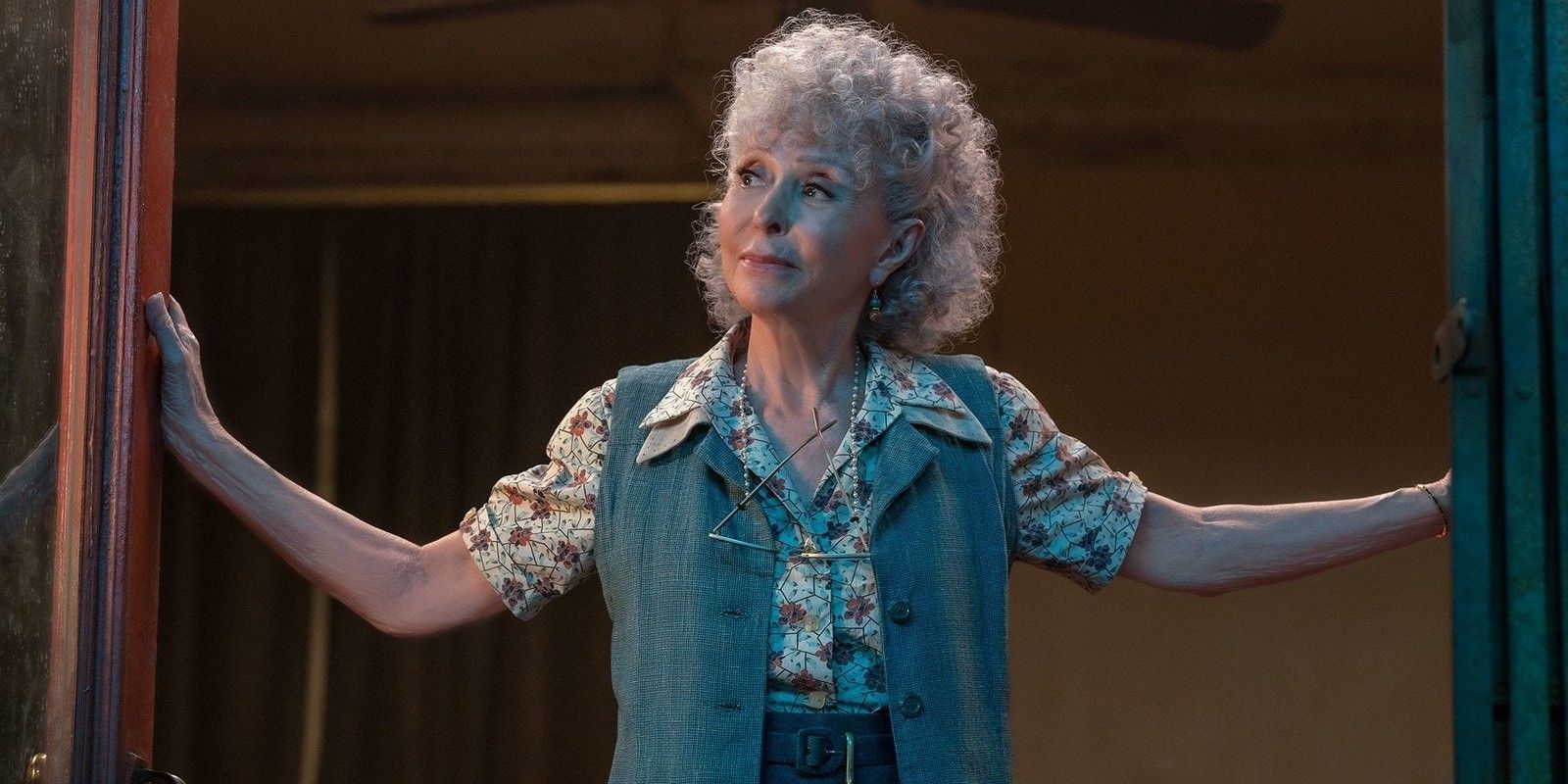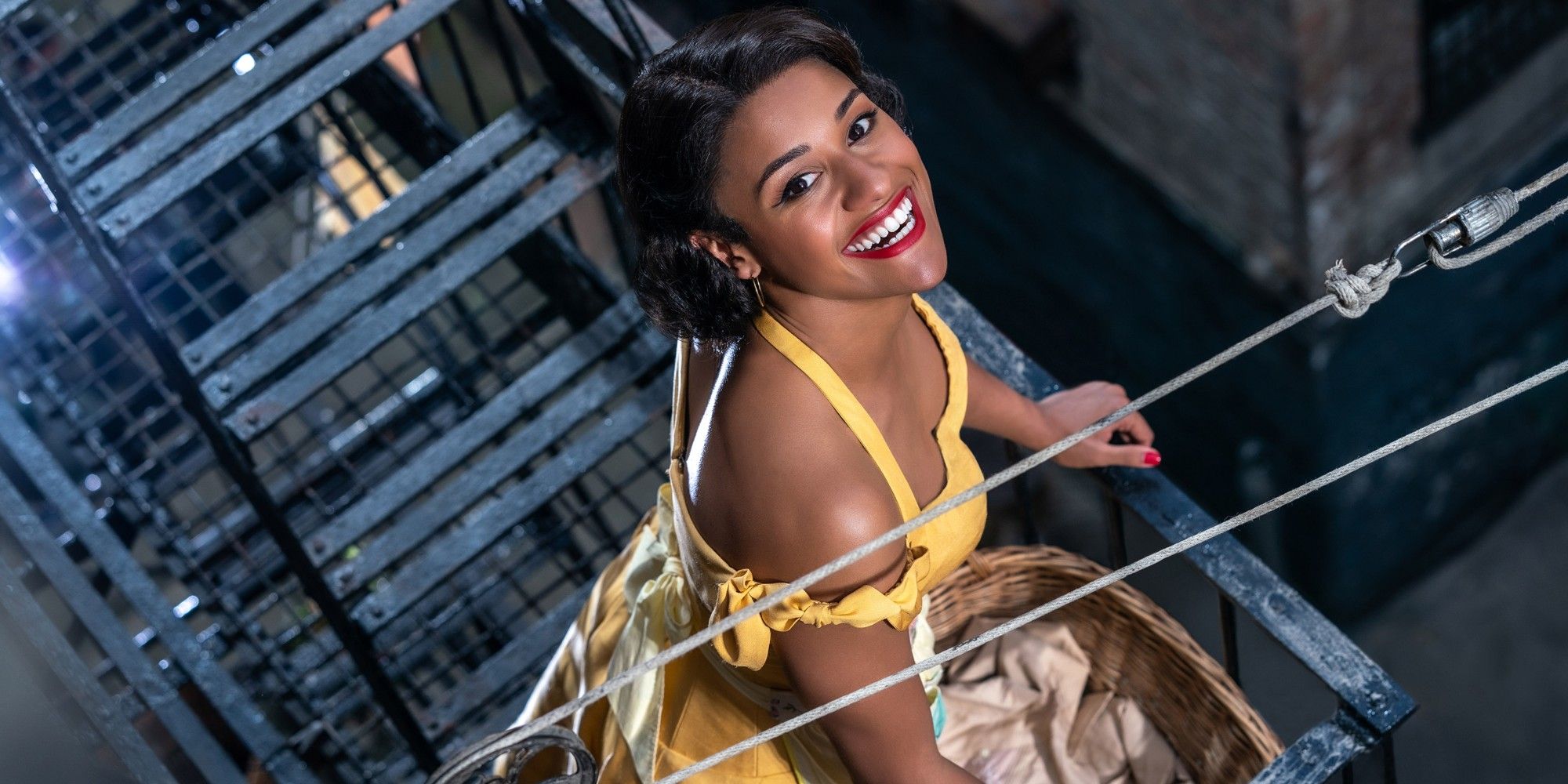The screenwriter for the new West Side Story reboot has explained the key difference between his version of the film and the iconic 1961 original movie script. The new film was written by Tony Kushner, who was hand-picked by director Steven Spielberg to re-tell the story and modernize it for today’s audiences. Based on the classic musical, West Side Story is a reimagining of Romeo and Juliet set in the New York City of the 1950s, and one of two blockbuster movie musicals in 2021, along with Jon M. Chu’s In The Heights, aiming to capture the box office. It follows Tony and Maria, two members of warring communities, as they are swept up in a whirlwind forbidden romance.
The new version of West Side Story as a whole is significantly more modern. Spielberg and Kushner's reboot put a greater focus on character development for female roles than the original, as well as adding in new female characters, and boasts a more diverse cast. Anybodys' identity as a transgender person (as played by non-binary actor Iris Menas), is explicitly explored in Spielberg's film. In the original 1961 film, Anybodys is portrayed as a "tomboy" by Susan Oakes. Spielberg’s reworking of the classic story also cast Latino actors for all of the film's Puerto Rican characters, addressing the original West Side Story's white-washed casting. Kushner's updated script also aims to remove harmful stereotypes and superficial representation of Puerto Rican communities. However, some critics have noted that Spielberg's new West Side Story still had a predominately white production crew, with only one major creative contributor, Venezuelan conductor Gustavo Dudamel, being of Latin descent.
In an interview with THR, Kushner spoke about some of the key differences that his and Spielberg's reboot aimed to include. In particular, the screenwriter explained how the original film "divides along gender lines." Kushner outlines that "The male side is the white side, and it’s the Jets. But on the Puerto Rican side, the story is carried not by the men, but the women,” referring to Maria and Anita being at the core of the narrative. However, Spielberg and Kushner decided early on that Doc, originally a supporting role, would be replaced by Valentina, a new character created for returning original star Rita Moreno. Kushner revealed he wrote "a whole 30-page biography of Valentina," to flesh out this new female character that was a core part of the "male side" of the Jets.
This speaks to a big change made in the 2021 version of the film, as Moreno’s Valentina steps in as Doc's widow. She also gets the musical number “Somewhere,” which was given to Tony and Maria in the 1961 original. Not only does this give Moreno a chance to return to arguably her most iconic film, but it tips the scales slightly so that the Jets' story is less male-dominated. This adds more weight to the moment in which Valentina stops the men from assaulting Anita (originally stopped by Doc in the 1961 West Side Story), rather than Anita being the only woman present during the scene. Spielberg and Kushner wrote the part specifically for Moreno, but the actor initially declined, not wanting to do a simple cameo. However, when she read the script and saw Kushner and Spielberg's intent to modernize and expand on the original story, she became enamored with the idea and very quickly signed on to play Valentina.
West Side Story is a classic for a reason, but the film was also certainly a product of its time. Spielberg's remake is an encouraging indication of a movie industry that is striving for increased diversity, accuracy and inclusivity. Though there remains an ongoing debate as to whether the film deserved a remake at all, considering its often overt racism and problematic portrayals, cast members like Rachel Zegler and Ariana DeBose have said they are "proud" to be involved, and consider the film "a huge leap forward." In addition to the updated visual flair, impressive use of color and stunning camera work, Spielberg's changes to West Side Story serve to deepen the legacy of the original musical, creating a more representative and inclusive story that can will help to the famous work alive for years to come.
Source: THR


